The World Oceans Day focusses this year on the theme “Life and livelihoods”. On this occasion, it is crucial to recall the vital contributions that sustainable fisheries and fishing communities make to food security, livelihoods, social cohesion, cultural heritage and identity.
Women and men’s lives and livelihoods in these fishing communities depend on healthy ocean ecosystems. However, in a number of cases in Africa, they are threatened by industrial developments which are deemed part of the “blue economy”: oil and gas exploitation, shipping infrastructures, fishmeal factories, coastal tourism, etc.
In that context, given that the European Union is an significant partner of Africa for the conservation, the exploitation and the governance of the oceans, it is essential to look at how the new European Commission communication for a sustainable blue economy, published on 17th May, envisages the EU role at international level; how it proposes to deal with fisheries and with the potential conflicts between fisheries and other sectors of the blue economy.
The EU will promote its blue economy vision globally
If the European Commission communication centers on measures to be taken within the EU, it also purports a global vision, encapsulated in the communication opening statement: “If the global blue economy, were compared to a national economy, it would be the seventh largest in the world […]. It operates in the planet’s vastest ecosystem: oceans hold 97% of all our water and 80% of all life forms.”
A whole chapter of the EC communication is devoted to how the EU will “continue creating the conditions for a sustainable blue economy internationally.” In the EC’s view, the justification for such international action is that “many blue economy value chains are global and exposed to global competition, and EU operators do business all over the world.” The EU sees its responsibility “not only in defending the EU’s market from unsustainable products and practices, but also in ensuring a level playing field for EU businesses in the global marketplace and in promoting the EU’s expertise, environmental action and rule of law.”
But the objectives of the EU at global level should not be mainly to defend EU “blue businesses” interests, however legitimate they are. Such an approach misses out on the EU commitment to promote the sustainable development of coastal communities in their relations with third countries, like African countries. This commitment, shared by many EU citizens, was acknowledged in 2020, by the European Commission DG MARE then Acting Director who asserted that small-scale fisheries in African countries are “the main component of the blue economy, both in terms of jobs and poverty reduction” and noted that “any diversification of the African economy should fully build on these traditional sectors.”
Laying the foundation of the African blue economy on artisanal fisheries should be at the heart of the EC dialogue with Africa, particularly in the future “EU-Africa blue task force” the communication proposes to establish. It should also be fully reflected in other international actions proposed, such as the “support to non-EU countries in advancing and diversifying their sustainable, inclusive and equitable blue economies,” for which the EC “will secure financial support from the multiple funding sources available to embed the sustainable blue economy approach in cooperation on ocean governance around the world.”
In its communication, the EC also proposes “to update its international ocean governance agenda in the light of recent consultations and recommendations by the International Ocean Governance Forum.” The results of these consultations showed that, for fisheries relations with partner countries in Africa, SFPAs were considered a key tool by many respondents: “the EU should use SFPAs to promote sustainable fisheries management at a regional and global level, as ‘building blocks’ for developing coherent regional fisheries strategies.” They also emphasized that “SFPAs should also go beyond sustainable resource management and integrate a social component, with sectoral support and other means to support the development of local fishing communities, emphasizing women’s role and participation.”
Improving SFPAs will be essential to reach the objective of the EU International Governance agenda, spelled out in the EC communication, to “ensure that the blue economy protects and does not harm the marine ecosystem; it should promote transparent and inclusive decision-making and raise social sustainability standards.”
Conflict resolution between fisheries and other blue economy sectors
The EC communication is not very explicit about how it will act when there are conflicting interests between the different blue economy sectors. However, it recognizes that alongside traditional sectors, there are “innovative sectors are evolving and growing, such as ocean renewable energy, the blue bio-economy, bio-technology and desalination, thus providing new prospects and creating jobs,” and it acknowledges they “have a cumulative impact on the marine environment, from visible pollution such as plastic litter and oil spills to invisible pollution such as microplastics, underwater noise, chemicals and nutrients.” The European Commission should not shy away from taking the argument further, and recognise that these new blue economy activities will lead to increasing space competition. Conflicts might arise with emerging activities threatening traditional ones like (small scale) fisheries.
The text of the communication, nevertheless, provides some elements of a possible way forward to address these conflicts between traditional activities — like fisheries — and emerging blue activities. It first argues that “Maritime spatial planning is an essential tool to prevent conflict between policy priorities and to reconcile nature conservation with economic development,” and that “public consultation involving both citizens and stakeholders is a fundamental part of the maritime spatial planning process.”
It also proposes to “create a Blue Forum for users of the sea to coordinate a dialogue between offshore operators, stakeholders and scientists engaged in fisheries, aquaculture, shipping, tourism, renewable energy and other activities,” with the hope that such forum “will develop synergies between their activities and reconcile competing uses of the sea.”
Furthermore, for one of the new blue sectors — deep-sea mining — the EC communication insists that: “In international negotiations, the EU should advocate that marine minerals in the international seabed area cannot be exploited before the effects of deep-sea mining on the marine environment, biodiversity and human activities have been sufficiently researched, the risks are understood and the technologies and operational practices are able to demonstrate no serious harm to the environment.”
Such precautionary approach should be followed more generally when it comes to the development of blue sectors, especially for the “newest ones”. Fishing communities around the world depend on a healthy ocean environment, and no new activity should be undertaken that will harm that environment, and have devastating knock on effect on them.
To ensure that artisanal fishing communities are not on the losing side, the EU should promote internationally, including in the EU-Africa blue economy taskforce, some of the elements of the Communication, namely, the promotion of participatory maritime spatial planning, the creation of stakeholders’ forums of dialogue, and the strict implementation of the precautionary approach for the development of new blue sectors. This is also something that all EU fisheries stakeholders — both from the fishing value chain and from NGOs — support, as reflected in the recent Joint Fisheries Advisory Councils advice to the European Commission which highlighted that: “Both the European Commission and the Member States must put transparent conflict resolution mechanisms in place ensuring that direct and indirect cumulative socio-economic effects of activities of the Blue Economy do not adversely impact one specific sector.”
The Commission should not shy away from recognising that small-scale fisheries are the most vulnerable among the “Blue Economy” sectors. Photo: a five star hotel near a landing site in Conakry, by Mamadou Aliou Diallo.
Responsible food systems
When looking at how to reduce EU’s carbon emissions, the EC Communication insists that aquaculture can help stop overfishing while preserving the oceans: ‘‘One of the sectors responsible for carbon emissions, pollution and biodiversity loss is the current system of food production and consumption.” The Commission cites its F2F strategy, as a comprehensive approach for “putting the system on a sustainable path.” It continues: “this includes responsible fishing to bring stocks to sustainable levels, sustainable aquaculture to complement the natural limits of wild captures and algae production as an alternative to agriculture.”
But what the EU means by “sustainable aquaculture” has to be more clearly defined. A recent report highlights that, in Europe, industrially farmed fish, especially carnivorous species such as salmon, actually feed on wild caught fish. For some production units, like in Norway, the fish feed comes partly from West Africa’s waters, where its production is contributing to small pelagics overfishing, and depriving local populations of its fish food. Norwegian farmed salmon is widely consumed by European consumers, and allowing this type of product on the EU market is unlikely to help promoting sustainable ocean resources exploitation.
However, a glimmer of hope can be found in the recently adopted “Strategic guidelines for a more sustainable and competitive EU aquaculture for the period 2021 to 2030,” which highlight that “low-impact aquaculture (such as low-trophic, multi-trophic and organic aquaculture), if further developed, greatly contribute to the European Green Deal, to the farm-to-fork strategy and to a sustainable blue economy.” These guidelines also emphasize that the environmental performance of the aquaculture sector can be improved, including by “using feed ingredients that are sourced in the way that is most respectful of ecosystems and biodiversity […] It also means limiting feed producers’ reliance on fish meal and fish oil taken from wild stocks (e.g. using alternative protein ingredients such as algae or insects or the waste from other industries).”
This will not be enough to halt the damages done by industrial fish farming of carnivorous species on the environment, on the wild fish resources, and on the communities that depend on these resources for their livelihoods. But it is hopefully a first sign of the EU’s realizing that this type of aquaculture can neither complement nor replace sustainable fisheries.
Impact on ocean and livelihoods: promoting and protecting small-scale fisheries
Compared with the earlier Blue Economy approaches of the EU, this new EC communication gives some more consideration to fisheries issues. It also proposes, albeit not very explicitly, some elements of a way forward for addressing conflicts between fisheries and other sectors of the blue economy, in a context of increased competition for scarce coastal space and ocean resources. This is something welcome, and these conflict resolution ideas should be put on the table of the EU dialogue with Africa, particularly in the context of the Africa-EU blue task force.
However, generally, the communication still gives a rosy vision of what the emerging sectors of the blue economy, like energy production or aquaculture, can achieve without questioning much their impact on “Ocean life and livelihoods” in traditional sectors like fisheries. In the absence of pro-active policies protecting fishing communities, in Europe and around the world, this European Commission’s approach at international level is likely to continue threatening coastal communities to the advantage of other sectors who compete for coastal and marine space.
In this regard, in the context of the Africa EU dialogue, particularly in the future Africa—EU blue task force, the first priority should be to help African countries develop policies that protect and promote sustainable artisanal fisheries, by funding the implementation of the international guidelines on sustainable small-scale fisheries.
Secondly, the EU should promote the establishment of transparent conflict resolution mechanisms to ensure that the “blue business” activities do not adversely impact coastal communities. This also supposes that the EU will hold accountable EU “blue businesses” beneficiaries if their activities violate human rights, especially African fishing communities rights.
This is the only way that the future partnership between the EU and Africa will fully recognise the essential role men and women in African artisanal fisheries and aquaculture sectors play in providing sustainable jobs, enhancing food security, and tackling climate change.
Banner photo: Artisanal fisheries landing site in Joal, Senegal, by Mamadou Aliou Diallo/REJOPRA.


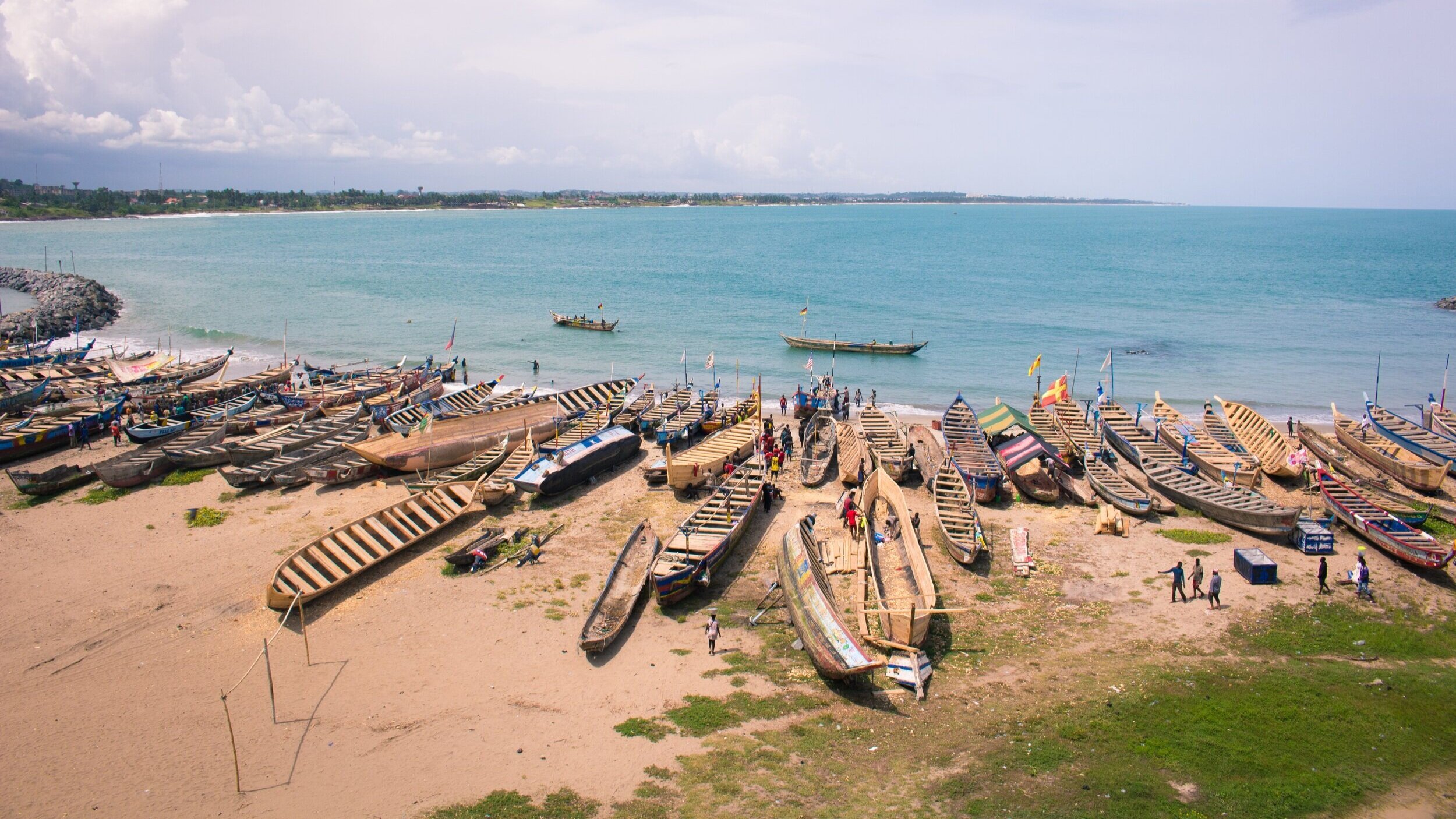


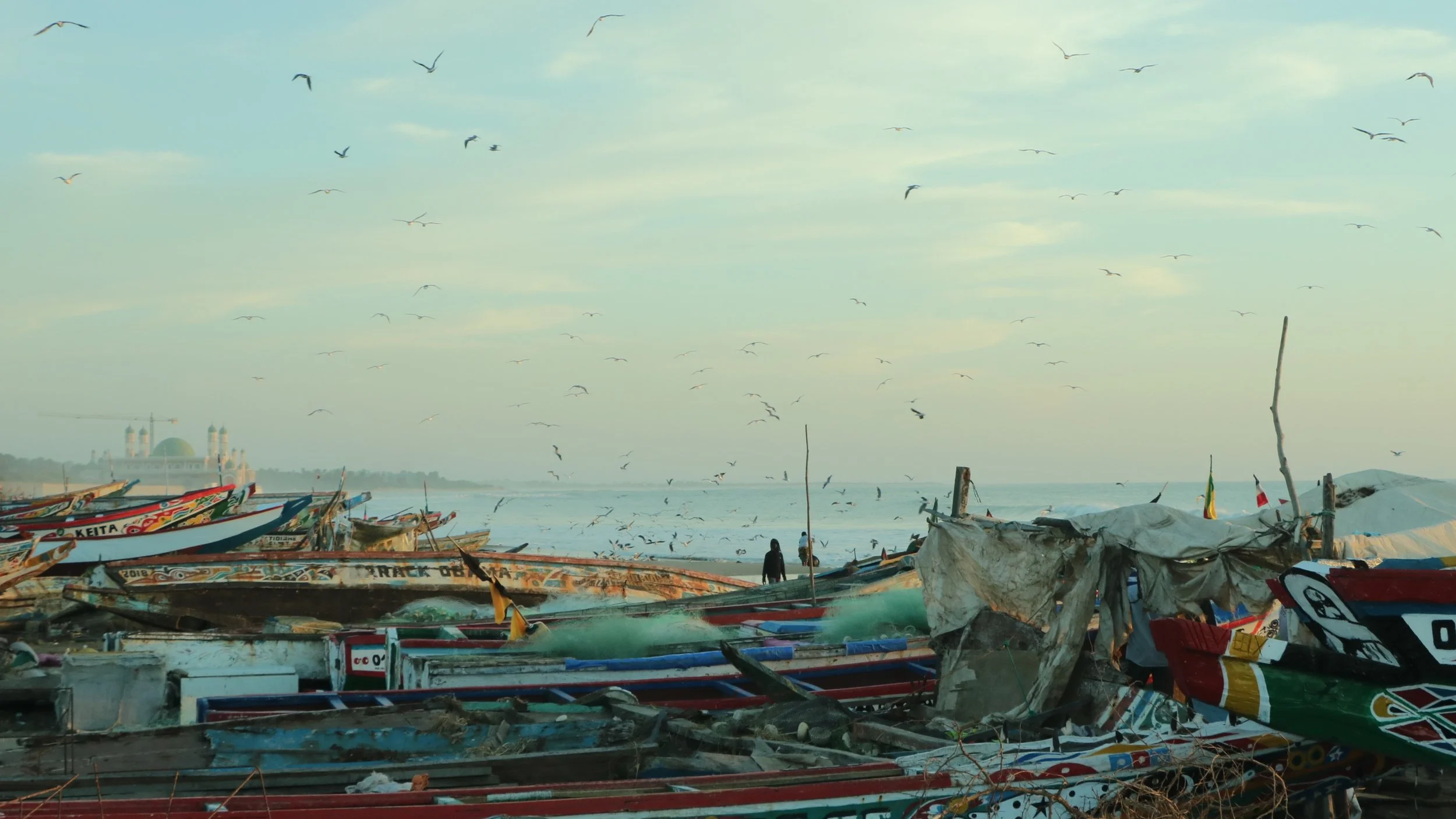
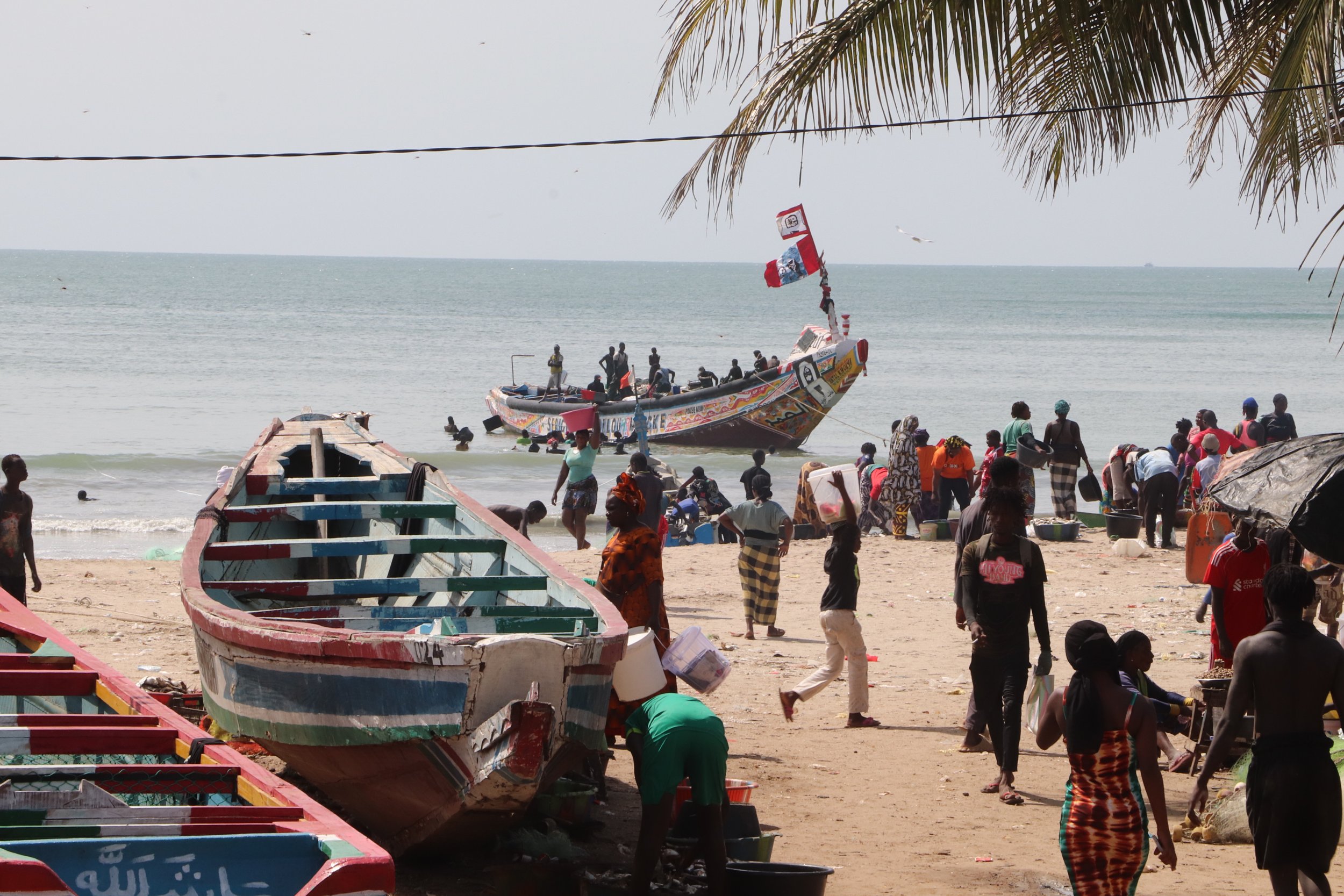
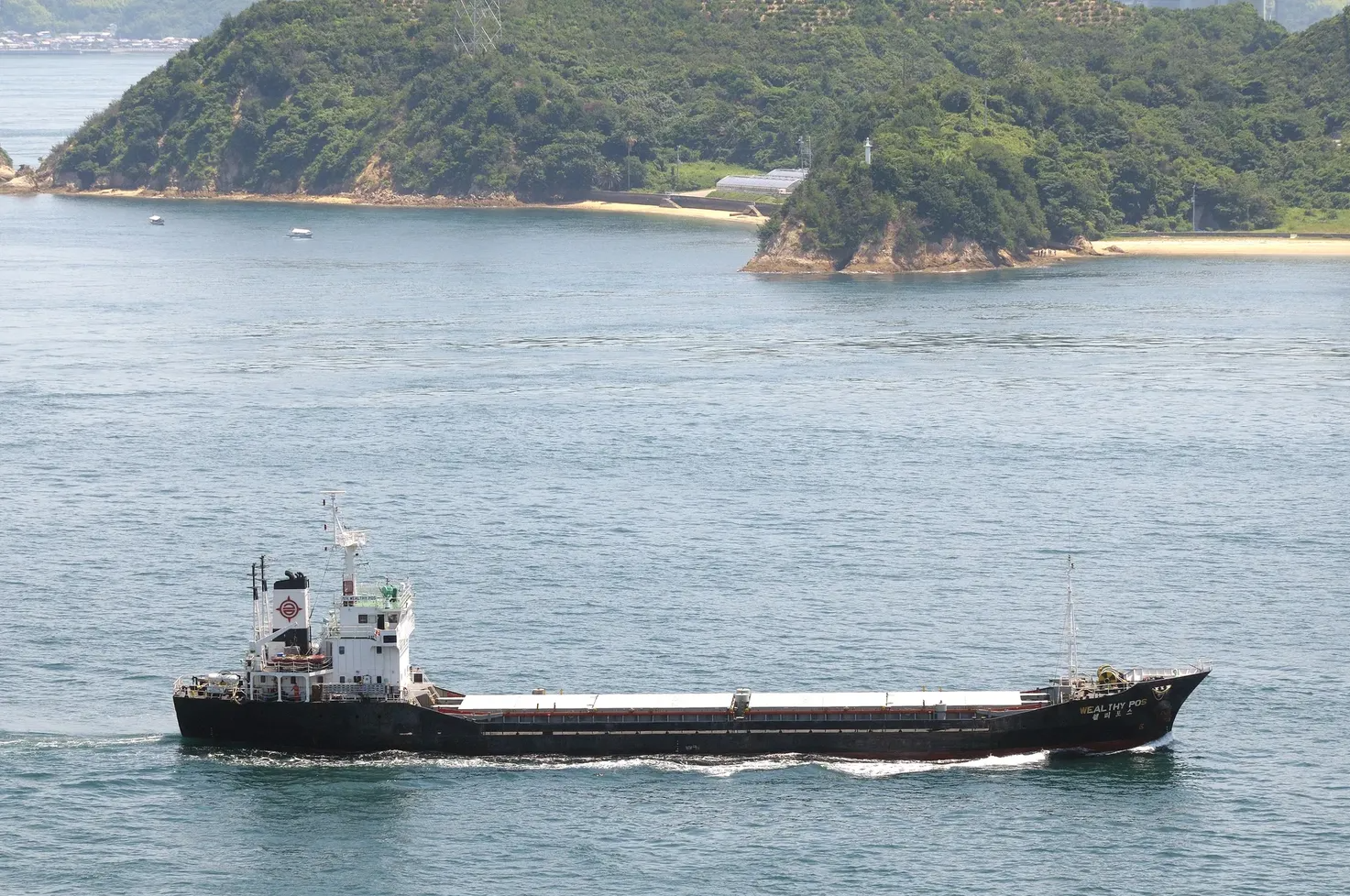


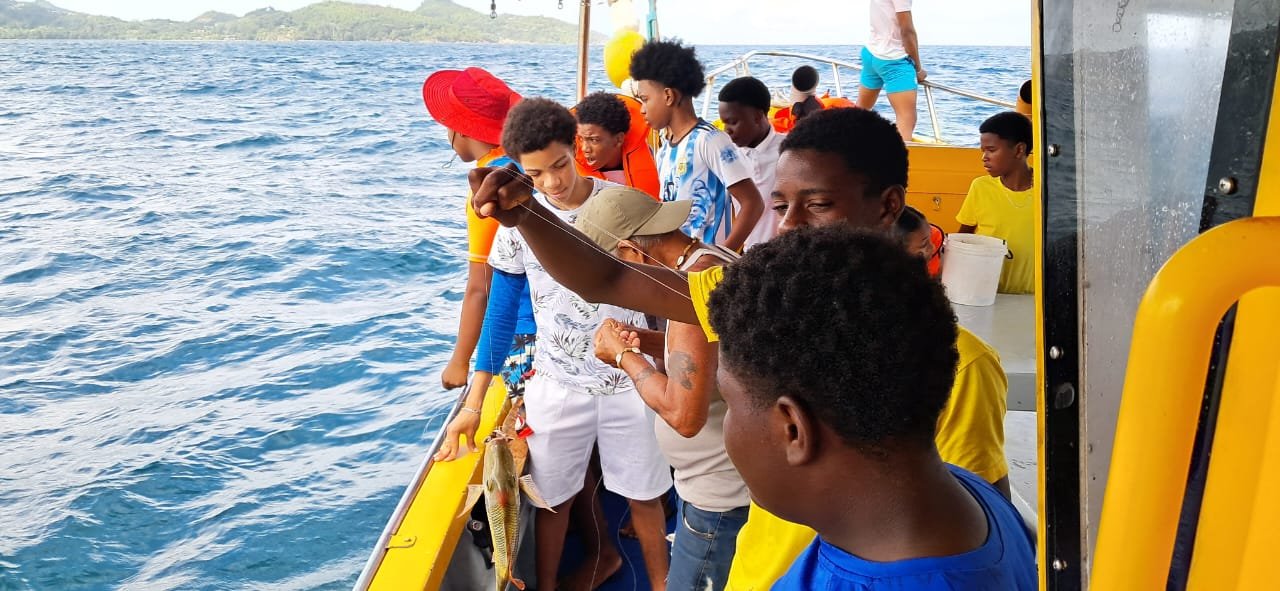

Guinea-Bissau has prohibited the production of fishmeal and fish oil. The objective is to safeguard national food security, preserve marine ecosystems, and protect coastal livelihoods, while supporting the sustainable regional management of shared fish stocks. The effectiveness of this decision will ultimately depend on robust enforcement and implementation.